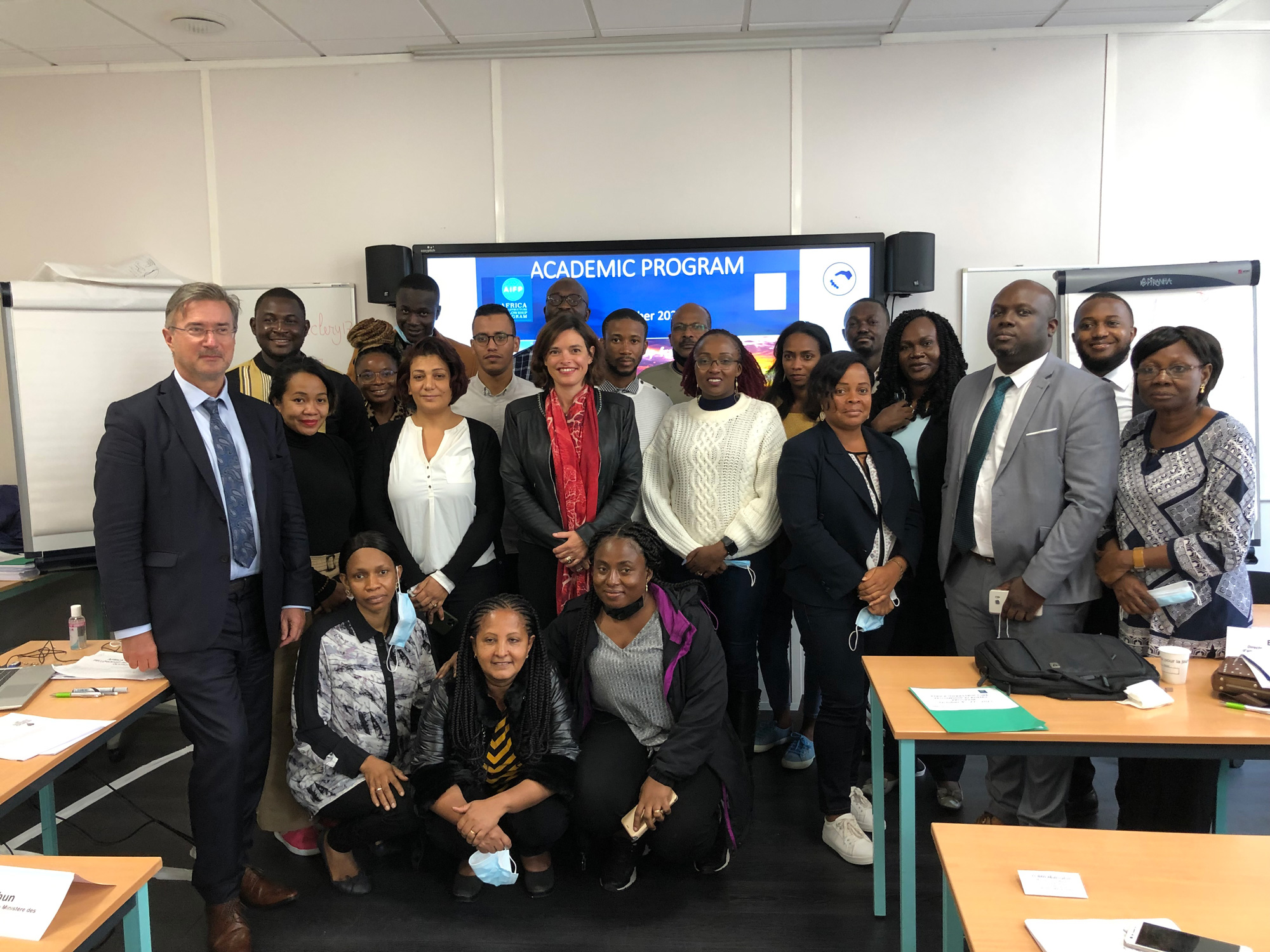934 results found
Featured results



More results
The policy framework for investment provides a systematic approach for improving investment conditions and a comprehensive checklist of key policy issues for consideration by any government interested in creating an enabling environment for all types of investment.

On 19 January, the Global Infrastructure Hub hosted a seminar in collaboration with the G20 Infrastructure Working Group (IWG) on ‘Scaling up sustainable infrastructure investment by leveraging private sector participation’.
To close the infrastructure gap in a sustainable recovery, we need more greenfield infrastructure, with environmental sustainability at its core. This requires innovative funding models and public-private partnerships (PPPs), particularly in emerging economies where private investors are more reluctant to invest and greenfield infrastructure need is greatest.

Infrastructure Monitor is the GI Hub's annual flagship report on the state of investment in infrastructure.


Infrastructure Monitor is the GI Hub's flagship report on the state of investment in infrastructure. The 2021 report examines global private investment in infrastructure projects, infrastructure investment performance, project preparation, ESG factors in infrastructure investment, and COVID-19 impacts.
The recording is now available for the GI Hub and International Finance Corporation (IFC) webinar ‘Infrastructure for the recovery: Innovation for de-risking greenfield investment’, the third in the series New Deals: Funding solutions for the future of infrastructure.
The pandemic increased inequalities among vulnerable people and highlighted gaps in access to financing and services in every country. Simultaneously, the climate crisis is still at ‘code red’. From every vantage point, it is clear that we need to get the most possible out of the unprecedented level of infrastructure as a stimulus.
Technological innovation could fill 60% of the infrastructure investment gap, but first we need to address the barriers to financing. On 17 November 2021, the GI Hub is hosting Financing InfraTech for the Climate Transition to explore solutions to galvanise infrastructure technology adoption at scale.
Today, the GI Hub has launched a new resource that shows how G20 governments are spending the USD3.2 trillion in infrastructure as a stimulus.

This research helps governments and industry ensure that infrastructure investment supports climate mitigation and adaptation, resilience, and inclusive outcomes during challenging economic times.


In Guanajuato, Mexico agriculture accounts for about 84% of water rights. Significant growth in agricultural production and use of groundwater wells have led to a 2 metre annual decrease in groundwater levels. Improving agricultural irrigation practices has the potential to address agricultural water inefficiencies for water-stressed regions like Guanajuato. MWS is a collaborative approach to improve economic outcomes for farmers, create resilient supply chains, and increase water efficiency by using ‘pay for performance’ to accelerate sustainable agriculture practices in water-stressed regions.
Due to decreasing aquifer water level (280 million m3 per year), Veolia Water Technologies (Veolia) partnered with The Nature Conservancy (TNC) and local municipality to propose the establishment of a water fund to finance changes to local water-catchment and uses. As a result, Livelihoods Funds created a project to support vulnerable farmers in Aguascalientes to invest in drip irrigation equipment to enhance farm resilience. Changing to a drip irrigation system showed a 50% - 70% decrease in water consumption by farmers. If the 5,000 local family farmers in the water catchment area adopted this system through the new fund, this results in approximately 65% reduction of the annual aquifer deficit.
This month the GIobal Infrastructure Hub (GI Hub) was delighted to participate in the second Africa Infrastructure Fellowship Program (AIFP). The capacity-building program is designed to upskill African government infrastructure specialists, enabling them to facilitate increased investment in a pipeline of new, sustainable infrastructure that has positive social and economic impact in African communities.
The GI Hub today launches Improving Delivery Models, an initiative that showcases proven delivery model improvements that enhance the quality of infrastructure. Many of the challenges faced in delivering infrastructure can be traced back to the early-stage processes of choosing the delivery model and structuring the project.
Cities are at the forefront of the pandemic crisis and are key players in the fight to achieve net-zero emissions targets. The recovery choices they make today will set urban agendas for years to come.
Infrastructure is one of the least technologically transformed sectors of the economy and there is a global consensus that our industry needs innovation to solve big challenges like the resilience of infrastructure during future pandemics, the rise of climate change, urbanisation, and an ageing population
The G20 Finance Ministers and Central Bank Governors (FMCBG) gathered for their fourth official meeting under the Italian G20 Presidency on 13 October 2021. Today, the results of the discussion were shared in the official Communiqué of the meeting and the Fourth Progress Report on the G20 Action Plan.
A new GI Hub initiative, launching in November 2021, tracks the amount of infrastructure as a stimulus announced by G20 governments and presents data insights that will help governments, investors, multilateral development banks, and project directors achieve transformative outcomes from infrastructure in the post-COVID-19 recovery.
Watch the GI Hub and International Finance Corporation (IFC) webinar ‘Green recovery for cities: What role can the private sector play’, the second in the series 'New Deals: Funding solutions for the future of infrastructure'. The discussion explored green recovery solutions and highlighted lessons learnt from two projects.





 GI Hub Innovative Funding and Financing tool and case study library
GI Hub Innovative Funding and Financing tool and case study library















